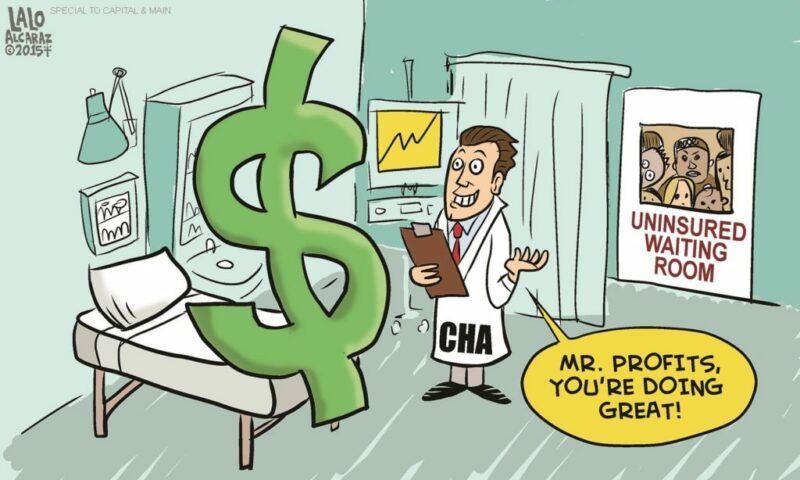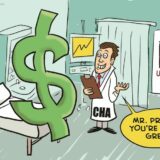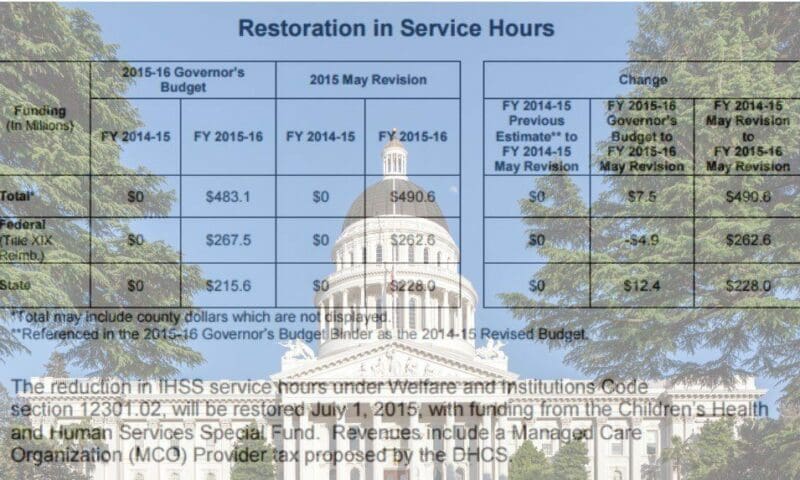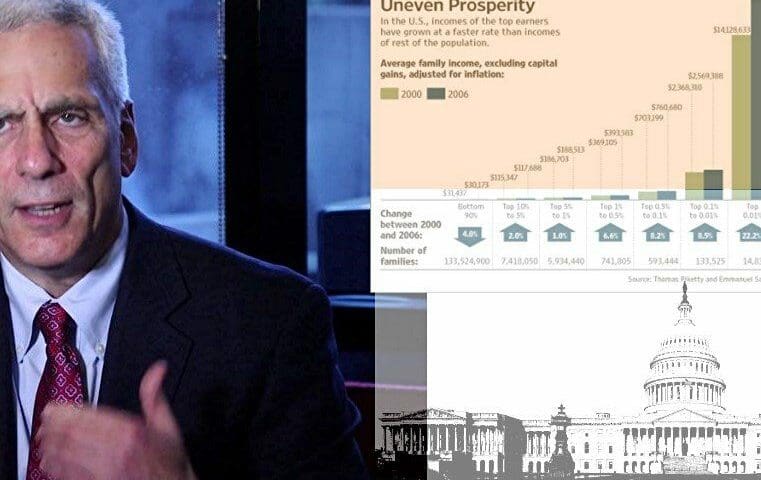Since the invention of the movie camera in the late 19th century, filmmaking has seen only a smattering of seminal technical developments. Only the advent of sound and color spawned sea changes in the medium. But in this century, the digital revolution has made it exponentially easier for filmmakers to tell stories. It was only a matter of time, then, before people started filming features using arguably the most ubiquitous technological device of our time.
It would be easy to prematurely dismiss Tangerine as a gimmick. After all, with all the tools of the trade available to film a movie, picking a 4.87-by-2.3-inch iPhone 5s seems not only ambitious but possibly a filmmaker’s folly. Luckily, for writer-director Sean Baker, the phone is a smart choice indeed.
‘Tangerine’ is ‘After Hours’ in heels, made on a dime.
It is the afternoon of Christmas Eve.


If it becomes law, a reform bill now in the state legislature will mark a milestone in the two-year effort to rein in the secretive but powerful private organization responsible for accrediting California’s 112 public community colleges. The target of Assembly Bill 1397 is the Accrediting Commission for Community and Junior Colleges (ACCJC), which was recently thwarted from terminating the accreditation of the City College of San Francisco (CCSF), mostly for issues stemming from the academically high-rated school’s Great Recession-battered finances.
The political firestorm sparked by the unelected commission’s effort to effectively close CCSF turned a spotlight of publicity on the darker policy corners of the commission, revealing an almost comically rogue culture of nepotism, free-market radicalism and mandarin indifference to the lives of students and teachers. But now the commission finds itself caught in that light once more,
» Read more about: Teaching Moment: Will Sacramento School College Accreditors? »


 Every year, every quarter, every month, the conventional economists either praise the increase in Gross Domestic Product (GDP) or anxiously wring their hands because the economy has not expanded enough. Expansion requires two key elements: a constant search for the lowest possible wages and an unending supply of raw materials – particularly fossil fuels, but also fertile soil and fresh water, and sometimes, creatures who live on the earth and in the seas.
Every year, every quarter, every month, the conventional economists either praise the increase in Gross Domestic Product (GDP) or anxiously wring their hands because the economy has not expanded enough. Expansion requires two key elements: a constant search for the lowest possible wages and an unending supply of raw materials – particularly fossil fuels, but also fertile soil and fresh water, and sometimes, creatures who live on the earth and in the seas.
While there are still places on the planet where people will take any job they can get, the ability to extract more energy resources gets riskier, and the environment’s capacity to absorb more waste is fast approaching zero. Reaching the outer limits of expansion threatens all of life on the planet. That reality is why many people are now calling for an “ecological civilization” as an alternative to more exploitation and extraction, one that offers another pathway for human civilization to take.


The nurses who showed up at state Senator Richard Pan’s Capitol office in May were furious. They had been assured by Pan, a Democrat from Sacramento, that he would be on their side when it came time to vote on Senate Bill 346, a charity care measure aimed at providing transparency to the state’s currently murky rules governing tax-exempt status for nonprofit hospitals.
But Pan, a physician who has risen to prominence this year as the sponsor of a mandatory school vaccination bill, abstained when the bill came up for a vote in the Senate’s health committee, effectively killing it when it fell one vote short of passing in that committee on April 29. The nurses alleged that the bill died because Pan withdrew his promised support after heavy, last-minute lobbying by the California Hospital Association (CHA). Pan’s spokesperson, Shannan Martinez, later issued a denial,
» Read more about: The Persuaders: California Hospital Association »


Here’s something you probably didn’t know happened in California in the last few years, and maybe it’s something you never imagined could happen: In 2011, two high-ranking state regulators were fired from their posts for pissing off the oil industry. No one really disputes the veracity of that statement; not even Governor Jerry Brown. “They were blocking oil exploration in Kern County,” the Sacramento Bee reported Brown announcing at an event six months later. “I fired them, and oil permits for drilling went up 18 percent.”
Catherine Reheis-Boyd, president of the Western States Petroleum Association, also celebrated without restraint, unconcerned that the people of California might detect her hand guiding the Governor’s pink-slip pen. After the firings, Reheis-Boyd boasted to the Los Angeles Times that her industry once again had a “clear pathway for people to get permits and proceed with drilling in this state.
» Read more about: The Persuaders: Western States Petroleum Association »


“Something always seems to be starting in California,” Angelo Amador, an attorney and vice president for the National Restaurant Association, told Bloomberg News.
It was 2012 and his remark was prompted by a California state Supreme Court decision favoring an employee’s right to have defined meal-break times. The association—dubbed “the other NRA” for its lobbying muscle, with annual revenues of $71 million in 2013–had vigorously opposed policy that required employers to ensure that workers take rest and meal breaks rather than leaving it to the employees to push back against managers to enforce break provisions.
Amador’s NRA is perhaps the largest trade group that you have never heard of, and supports an “institute” run by a PR firm that churns out opinions and papers to shape policy debates.[divider]
Also read these stories in our “Persuaders”
» Read more about: The Persuaders: California Restaurant Association »


Ever wonder how a bill doesn’t become a law?
One week we’ll be hearing all about a proposed law intended to improve the quality of life for the majority of Californians, a bill that seemingly has on board every state Senator or Assembly member who cares about the environment, consumer rights or worker safety. Then, suddenly – Poof! – the next thing we know, the legislation has been killed in committee or withdrawn by its sponsor.
Whenever we hear of these kinds of Sacramento stories, we might assume it’s the work of the Chamber of Commerce. After all, the CalChamber is the state’s big guard dog defending corporate interests by placing long-overdue bills on its dreaded Job Killer list. But the Chamber isn’t the only bully on the block – it often has help from a gang of powerful lobbying organizations that represent the individual interests of very specific industries.
» Read more about: Today: “The Persuaders” Looks at Corporate Lobbying »


The Supreme Court’s ruling Friday to legalize same-sex marriage is a victory for human rights and an occasion to rejoice. The decision follows in the footsteps of the Supreme Court’s 1967 decision in Loving v. Virginia that outlawed states’ bans on interracial marriage, an earlier pathbreaking victory for marriage equality.
But there is a huge difference in the two rulings. The Loving decision on inter-racial marriage was unanimous. Friday’s ruling on same-sex marriage was a 5 to 4 decision. We should not forget that four members of the nation’s highest court — Chief Justice John Roberts and Justices Samuel Alito, Antonin Scalia and Clarence Thomas — opposed marriage equality. Each had his own reasons to justify his vote to himself and to the public, but history will record that all four of them supported states’ rights over equal rights, bigotry over tolerance. Justices Stephen Breyer,
» Read more about: Courting History: Why John Roberts Is No Earl Warren »


The first shot of What Happened, Miss Simone? shows a crowd applauding the appearance of a singer. After years of a self-imposed hiatus, Nina Simone walks onstage, and with one hand on a piano, bows. For a full 10 seconds. She then looks up and out at the rapturous audience. But she is not smiling. Her stare is intense. Some will see fear in her eyes. Others will see indifference. Others might even see loathing. Or all of it.
Once Simone sits at the piano and the applause ends, she does nothing for half a minute. The uncomfortable silence is finally broken by her softy saying “Hello” into the mic, only to be greeted by a fan shouting, “Hi. We are ready!” But is Simone? After seeing Liz Garbus’ documentary, an even better question is, “Was she ever?”
Unlike our modern commodified stars, Nina Simone’s life was a messy journey of discovery. » Read more about: Film Review: ‘What Happened, Miss Simone?’ »


Economist Jared Bernstein recently sat down with Capital & Main to offer his perspective on a wide range of political and income-inequality topics. Formerly a top advisor to Vice President Joe Biden and, currently, a senior fellow at the Center on Budget and Policy Priorities, Bernstein spoke to us again this week, following the U.S. Senate vote to fast-track the Trans-Pacific Partnership. The interview has been edited for brevity and clarity.
Capital & Main: What was your first, red carpet reaction to the Senate’s fast-tracking of TPP?
Jared Bernstein: I’m not that surprised but I’m not deeply disheartened or worried. What’s positive is that this time the text of the TPP will be in the public domain for two months before the ratification in Congress, and that will give lots of us a chance to take a closer look at it —
» Read more about: No Smiley Faces: Jared Bernstein on the TPP Juggernaut »


In two Thursday rulings the Supreme Court came down on the side of a functioning government that can help improve life prospects for Americans – should the people’s representatives so desire. While Californians wouldn’t have been immediately impacted had the Court undermined legislation on health care and housing discrimination, the implications could have been drastic down the road.
In upholding the Affordable Care Act, the High Court affirmed its role firstly to “say what the law is,” as Chief Justice John Roberts wrote in the majority opinion, citing Marbury v. Madison; and, secondly, to be guided in that endeavor by adhering to the overall plan of the legislation — rather than zeroing in on each textual clause viewed in isolation. In doing so, Roberts’ Court not only saved the landmark health care law at hand, but avoided creating the implication that major legislation could potentially be undone by a stray sentence or errant copyediting.


A recent report found more than $200 million in charter school fraud, waste and self-dealing. Headlines regularly tell the story of money stolen and sudden, midyear charter school closures that leave children without a school and teachers unable to serve their students. Meanwhile, the Walton Family Foundation is spending hundreds of millions to promote the rapid expansion of charter schools, while advocating for deregulation and minimal oversight.
Public school advocates have produced an 11-point accountability agenda that would reduce charter school corruption and stop the weakening of neighborhood public schools. The agenda calls for increased accountability (through open board meetings, publicly available budgets and contracts, and rigorous audits); protecting neighborhood schools (through impact analyses and financial assessments of the effects of local schools); and protecting taxpayer funds (by ensuring the public retains control of public property,
» Read more about: Stop the Walmartization of Public Education »


Tristain Frye’s success in life is important not just to her – it’s important to all of us.
Frye, who recently worked on a new building at Gonzaga University in Spokane, WA, did not have an easy road to becoming a carpenter’s apprentice.
When she was 22, she was sentenced to 12 years in state prison. At that point, the odds were solidly against her.
That is until Tristain was accepted into an innovative pre-apprenticeship program in partnership with the Ironworkers, Laborers and Carpenters unions called TRAC: Trades Related Apprenticeship Coaching at the Washington Corrections Center for Women. Read about her in my article on the AFL-CIO blog, Jobs, Not Prisons: Unions Help Formerly Incarcerated Women Build a New Life.
The 16-week program is open to women in the prison who can prove themselves physically able to do the demanding work required in the construction industry: carry heavy loads of rebar,
» Read more about: Reducing Prison Populations One Job at a Time »


In what is being billed by unions, environmentalists and human rights groups as an endorsement of an unprecedented expansion of corporate power and privilege, the Senate today passed a cloture vote on a motion to concur with a trade promotion authority (TPA) bill passed by the House.
Cloture effectively clears the way for Wednesday’s expected vote on fast track itself, which will only require a majority for passage and is needed to speed through passage of President Obama’s secretive and controversial Trans-Pacific Partnership (TPP) trade agreement without filibuster or amendment.
TPP has been widely criticized for effectively granting extraordinary legal rights to corporations and investors that it does not extend to unions, public interest groups and individuals.
Today’s cloture vote was 60-37, the barest minimum needed for passage. Thirteen so-called Corporate Democrat senators voted yes — including California’s Diane Feinstein — one less than lined up behind May’s 62-37 senate approval of a bill that had combined TPA and Trade Adjustment Assistance (TAA).


Clocking In is a new online tool from Race Forward, a New York-based group whose self-described goal “is to build awareness, solutions and leadership for racial justice.” Its analysis finds disturbing trends for people of color and women employed in the U.S. service industry. This virtual resource allows service employees to share their real-life job experiences with other workers, consumers, employers and policymakers 24/7.
90% of female tipped workers have experienced sexual harassment in the workplace.
Clocking In sends participants on a virtual journey while offering activist information on a range of workplace issues. Visitors choose one of three employment portals representing the restaurant, retail or domestic industries.
Clicking the restaurant option, for example, brings up a screen that says: “Workers in the restaurant industry face race and gender discrimination daily! Click ‘Start’ to learn from Race Forward and Restaurant Opportunities Centers United (ROC) about how it happens and what YOU can do about it!”
Next is a choice to click a male or female character.


More Americans believe in angels than in climate change. Still, a poll released earlier this year indicated that more Americans than ever now think that climate change is happening, that it is caused by human activity and that world leaders have a moral obligation to do something about it.
So why are we getting so little action? If a large majority of people actually thinks our only home, the Earth, suffers from human behavior, then shouldn’t our personal and public actions reflect that reality? Oh, sure, lots of people drive electric cars, but lots more drive SUVs. I know that California has implemented a “cap-and-trade” program that will limit the future growth of carbon in the air, but the state has not banned fracking, which wastes water and hurts our air quality. And I know that the federal government has been setting higher goals for vehicle mileage —
» Read more about: A Change in the Climate of Climate Change? »


The 467,000 Californians who receive assistance from the state’s In-Home Supportive Services are breathing a little better, if not easier, now that a new budget has restored care cuts to the agency. The program typically assists elderly, blind and disabled people on low incomes with housework, meal preparation, personal hygiene and other services; by paying individuals through the state to perform these tasks, the care recipients are able to remain in their homes and avoid being institutionalized – which also saves taxpayers millions of dollars.
Also Read: Will Sacramento Restore Home Care Cuts to Seniors & the Disabled?
A few years ago IHSS suffered a seven-percent funding cut that Governor Jerry Brown pledged in January to restore – but without providing a specific funding stream to do so. Brown suggested that revenue for the restoration could come from either a new tax on certain health care plans or from the state’s General Fund.
» Read more about: In-Home Care Recipients Cautiously Applaud New Budget »
Several years ago I produced a documentary film about young men who had been in gangs and in prison, men who had had their lives turned around when they were accepted into building trades unions. They all came from tough and economically deprived backgrounds. In addition to their social environments, what was similar about all of the young men who had gotten in serious trouble was the absence of a father in their lives.
Most of them explained to me that while they respected their mothers’ feelings while in the home, when outside of the house they gravitated towards other male figures. Arturo Peña, who was part of a gang in Los Angeles’ Ramona Gardens housing project, reflected on his experience as a young man. “We didn’t have fathers growing up so we looked up to these older gang members who dominated and controlled the streets.”
The lucky ones from so-called “broken families” —
» Read more about: Fathers and Sons and Daughters: Father’s Day at the Wilshire Grand »


Former Governor Arnold Schwarzenegger once termed it the “stuff [I] used to blow up in the movies.” But America’s vital infrastructure—highways, railways, bridges and thruways—now face a doom worse than the Terminator ever imagined. That’s the destruction from the rust, decay and corrosion of trillions of dollars worth of elderly tracks, canals, ports, structures and causeways that carry our trade and traffic all over the United States.
Sixty-one thousand bridges, located mostly in local jurisdictions, are potentially dangerous. That U.S. rail systems are about $60 billion behind on maintenance (as of five years ago) was tragically illustrated by the recent fatal Pennsylvania Amtrak disaster, blamed on the delayed installation of a new control system. Last month’s burst oil pipeline in Santa Barbara County also underscored the deterioration of even private infrastructure. Both tragedies demonstrated that continued neglect comes with a fast rising cost in both money and lives.


When Jared Bernstein recently sat down with Capital & Main, he had just been chosen as chair of the National Employment Law Project’s board of directors, while continuing his roles as a senior fellow at the Center on Budget and Policy Priorities, and as a frequent commentator on MSNBC and CNBC. Picked in 2009 by Joe Biden to be the Vice President’s top economic advisor, Bernstein had already distinguished himself as a passionate critic of inequality during his long tenure at the Economic Policy Institute, one of the country’s leading think tanks. His views on economic issues were well to the left of Obama’s and the rest of the President’s team, ensuring that progressive ideas would get a hearing inside the White House as the administration wrestled with the worst downturn since the Great Depression.
While Obama and his advisors succeeded in reversing the Great Recession’s massive job losses and saving the bacon of the financial industry,
» Read more about: Watch Now: Jared Bernstein on Inequality & Lip-Syncing Republicans »